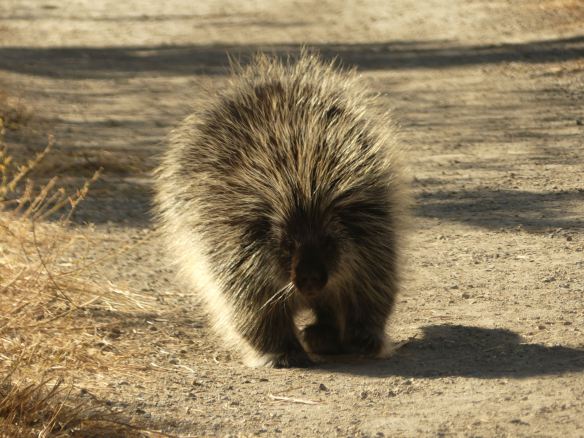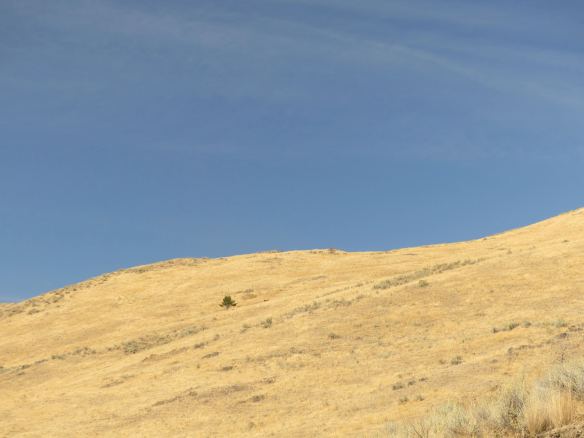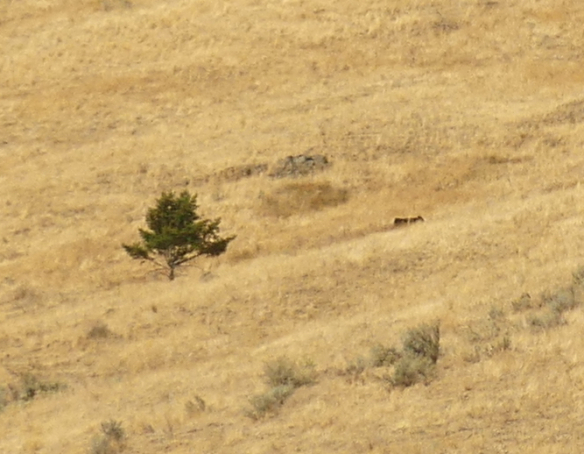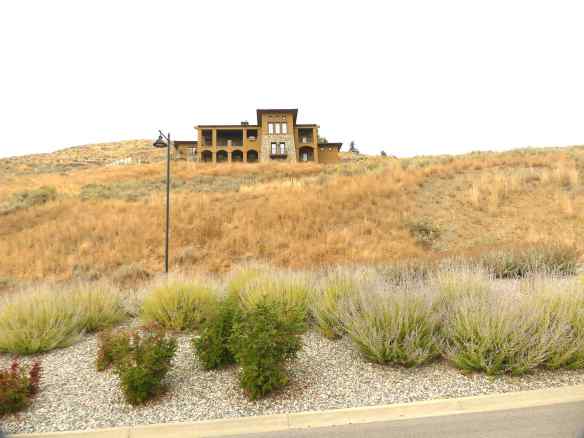Populism is a form of political system which furthers the beliefs of a class called “the people” against a class called “the elite.” We could call “the people” any of the following:
regular folks, white people, local people, indigenous people, poor people, and so on;
and we could call “the elite” the following:
rich folks, intellectuals, scientists, bureaucrats, career politicians, town houses, land owners, property developers, and so on,
or if we like, we could call the elite the following:
regular folks, white people, local people, indigenous people, poor people, and so on;
and we could call the people the following:
rich folks, intellectuals, scientists, bureaucrats, career politicians, town houses, land owners, property developers, and so on.
Oh, brother. Let’s do a little experiment. Imagine, for a moment, that this fellow is “the people”:

And imagine, for a moment, that this is “the elite:”

Sound far-fetched? Not really. The porcupine lives in a riparian area draining from the back side of this hill. This upthrust lump of seabed, in other words, creates the conditions in which the porcupine lives. But, alas, look again:

The porcupine does not exist in a “natural” world. It uses a culvert as a short cut under a fence, to access a walking trail in an old irrigation canal to access its trail down to a farmer’s compost pile, which has fed its family for generations, well, in between nibbling on choke cherry bushes in the winter snow. At the same time, the “natural world” is not a proper elite. Look at it, just a kilometre to the west:

The elites of this city (and this is in the city), who tend to be retired oil men or the people who are developing the land for their houses, often call this a wasteland of weeds and cactus. They are rather correct. Look again:

A thousand hectares of once-productive grassland for one cow? No, two. The other one was behind a rock off to the right of the image. This is land that once powered the elites of Canada in this region, ranchers for whom the grasslands were sacrificed and for whom all property rules were created. 150 years ago, the act of privatizing this land, fencing it from indigenous use and putting cattle upon it was called development. Now the so-called elite wants it to be developed into productive farmland, with the weeds (both weeds and natural grasses) cut down to make good grazing, or the land broken up and turned into housing lots for “the people,” who tend to be “the elite.” This is not an elite which provides direction for the people. It’s just open competition. So, let’s look again:

When this land was first settled, it was farmed as “common land,” with open access to all. That meant that open grazing of cattle was available to everyone, which sounded mighty egalitarian but resulted, sadly, in the end, with the first man who could get his cattle on the land, often due to his wealth and power, getting the benefit of the grass and the rest of the ranchers (and the indigenous syilx) getting, well, dead cows. Privatization of land was meant to settle that. In other words, a form of populism.

The result of that, however, is that whoever places a house on this “privatized” or “popularized” land gets the benefit of the land, and changes the nature of the land, not for the common good of the land but for whatever purposes he wants, with no oversight other than the populist principle that a private owner knows best and his rights are inviolate. This is one reason that populism is a silly idea. The German sociologist Karin Priester, who has studied, among topics, Italian fascism and Mary Shelley’s Frankenstein, calls populism a relational idea with an empty heart. It is, by the way, this heart that populists such as Adolf Hitler and Benito Mussolini filled with mystic substance, in the place of rational analysis. In short, the term is a mess, and yet its ideas, and the relationships they present, are rife in contemporary society. They create a gap between oil men, on the one hand, and indigenous peoples, on the other, which governments then try to bridge, often against the protests of “the people” and, often, the protests (called appeals to the Supreme Court) of the oil men. This is the normal state of affairs. It can only, ultimately lead to one end, this:

“The people” might want a grassland hill, or might want development, and “the elite” might want a grassland hill, or might want development. In reality, though, the productive capacity of the land has been destroyed. You are looking at a couple hundred hectares of richly productive indigenous land that can’t even support a single cow, and whose grasses have been replaced by weeds. You are looking at weeds. You are not looking at nature, because there is no “nature” at the heart of populism, even though Hitler and Mussolini argued that “natural man”, i.e. the heart of populism, knew best. That’s the trick of populism: it makes dichotomies where none exist, legitimizes, even creates, bad behaviour, and leads, always, to the dehumanization of the earth in the name of human values. These are issues which Karl Marx blamed on capitalization and its distortions of social relationships. Sure. Maybe. The smoky forest-fire light that this loon is swimming in could be called the result of capitalist distortions of healthy forest policy…

…but it might be more usefully called the distortion of populist policy, that places “nature” as an elite, which “the people”, i.e. humans, have a basic political right to draw upon, and which will support them unquestionably, as long as they adjust their courtly behaviour (land use plans) to fit the moods of the elite (the land.) Populism is dangerous, not because it pits one group of people against another but for 2 reasons:
It creates separate groups of people.
It is a series of relations without a heart (a good definition of death), which replaces a series of relations which create life.
Relationships will always be there, but there is a big difference between a wooden house filling an ecological niche and a loon filling it, or between people who weave relationships which include the earth (i.e. weave relationships between so-called elites and so-called “people”) and those which treat it as a queen (nature), which will always return energy, forever, without input of any kind. It is a dangerous seduction.
Share this:- More





